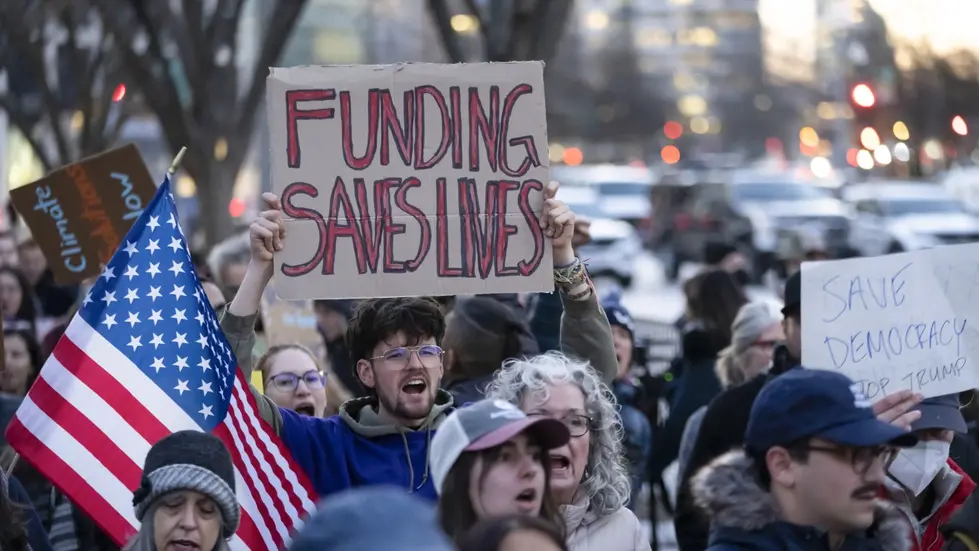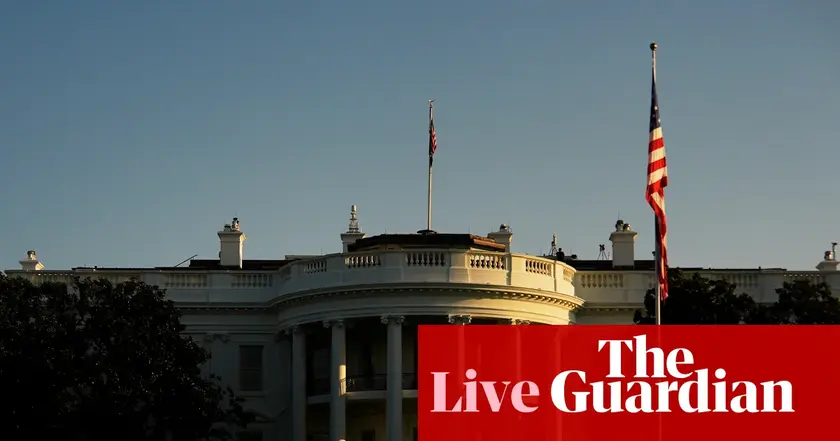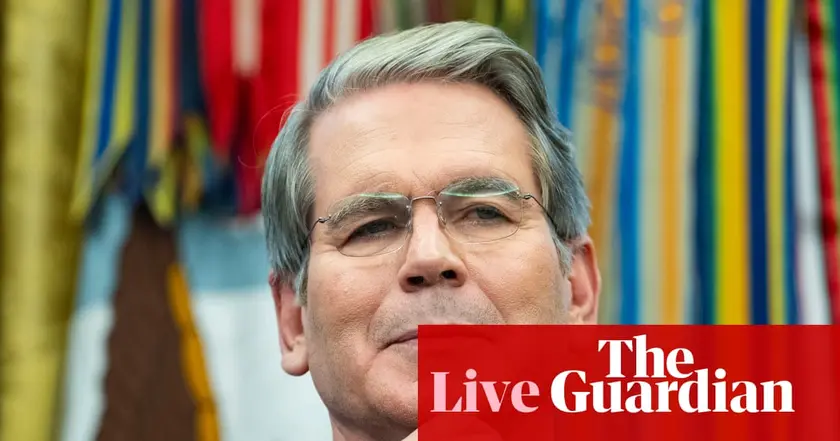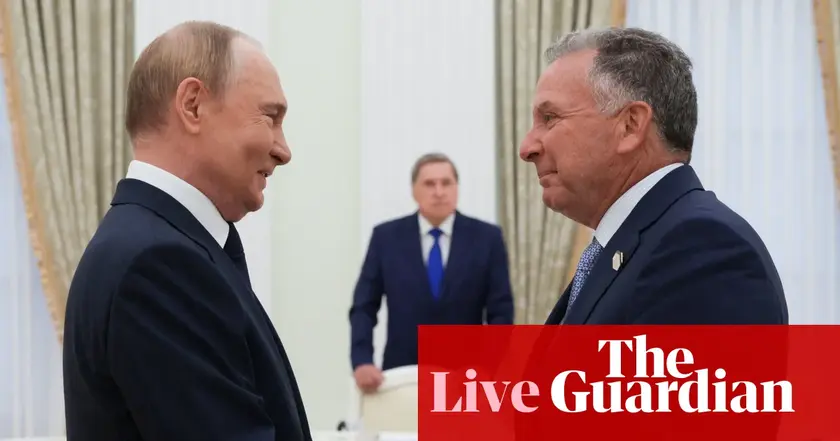T4K3.news
Court Allows Trump to Maintain Foreign Aid Freeze
A federal appeals court lets the Trump administration continue freezing billions in Congress-approved foreign aid while leaving the constitutional questions unresolved.

A federal appeals court ruled the administration can continue to freeze billions in Congress-approved foreign aid, signaling ongoing limits on Congressional oversight in funding decisions.
Court Allows Trump to Maintain Foreign Aid Freeze
A federal appeals court ruled 2-1 that a group of international aid organizations lacked standing to challenge the Trump administration’s foreign aid freeze, allowing the administration to continue withholding or terminating billions of dollars Congress had earmarked. The funds in question include nearly $4 billion for global health programs through September and more than $6 billion for HIV and AIDS programs through 2028. The decision reverses a district court injunction, which had blocked the freeze, but the panel did not decide the constitutionality of terminating funds. The case traces back to actions taken on the president’s first day in office and follows the administration’s dismantling of the U.S. Agency for International Development, a move that reshaped how about $30 billion annually in global health and development programs are managed.
Judge Karen LeCraft Henderson wrote the majority opinion, joined by Judge Gregory G. Katsas. Judge Florence Pan, appointed by Joe Biden, dissented, arguing the ruling raises serious constitutional concerns and undermines Congress’s role as a legislative check. The court left open the constitutional question of whether funds could be terminated, a matter that could be revisited on appeal. Advocates for aid groups criticized the decision as risking lives and global health efforts, while supporters framed the ruling as a strict adherence to executive authority over spending decisions.
Key Takeaways
"Time and again, this administration has shown their disdain for foreign assistance and a disregard for people's lives in the United States and around the world. More broadly, this decision, which we will appeal to the extent possible, further erodes Congress's role and responsibility as an equal branch of government, and the majority opinion makes the court complicit."
AVAC executive director Mitchell Warren on the ruling
"The court's holding that the grantees have no constitutional cause of action is as startling as it is erroneous."
Judge Florence Pan dissenting on the ruling
"The grantees have failed to satisfy the requirements for a preliminary injunction in any event."
Judge Karen LeCraft Henderson writing for the majority
"When the President refuses to spend funds appropriated by Congress based on policy disagreements, that is merely a statutory violation and raises no constitutional alarm bells."
Judge Florence Pan dissenting on the constitutional question
The ruling highlights a persistent tension in American government: who controls money that is supposed to fund policy. By focusing on standing rather than the merits of the funding itself, the court avoided a broader constitutional fight over whether the president can unilaterally halt funds Congress has approved. That choice preserves executive authority in the short term but deepens the quarrel over the balance of power in foreign policy. The dissent matters because it frames the decision as a constitutional alarm bell, warning that policy disagreements should still trigger legal scrutiny when they cut off money that Congress has explicitly appropriated. For aid recipients and global health programs, the practical effect is a longer period of uncertainty and potential funding gaps, even as humanitarian needs persist.
Highlights
- Aid is a lifeline not a bargaining chip
- This decision weakens Congress and costs lives abroad
- The court should guard the balance of power not tilt it
- The fight for accountability continues
Risk to congressional oversight and aid programs
The ruling expands executive control over Congress-approved funding, potentially delaying or cutting vital health and development programs and raising questions about checks and balances.
The legal fight over aid funding is far from over and the next chapter will test both courts and Congress.
Enjoyed this? Let your friends know!
Related News

DC police takeover faces federal lawsuit

Increased Global Pressure on Israel Due to Gaza Actions

Kremlin presses Donetsk surrender in ceasefire offer

Zelenskyy reports 22 killed in overnight Russian strikes

Israeli minister confronts Palestinian detainee in prison clip

Capitol presence links Trump pick to January 6

Manufacturing revival linked to new US tariffs announced

Putin and US envoy meet ahead of Trump deadline
